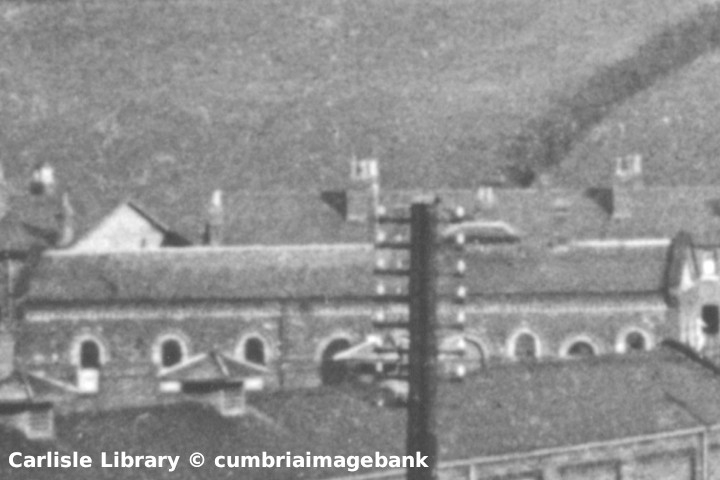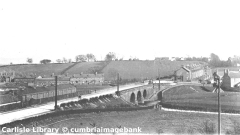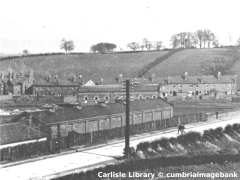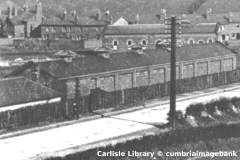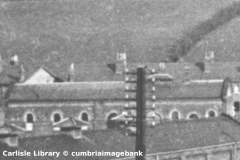The date of construction and original purpose of this building have not yet been ascertained. However, it is depicted on 'Arthur's Plan of Carlisle' (dated 1880) and it was almost certainly associated with the adjacent Glasgow & South-Western Railway (G&SWR) engine shed. When those facilities were relocated to Currock in December 1895, the engine shed was demolished. However, this attractive (and more substantial) building was retained for re-use.
Part of the interior was soon converted into a meeting hall / mission room and the official opening (over the weekend of 21st & 22nd August 1897) was marked by a series of events organised by the Midland Railway Temperance Union. These included a tea (followed by formal addresses), singing, violin & piano recitals and a series of temperance meetings (at which "several pledges were taken")[1]. The hall also become the base for the local branch of the Railway Mission (an organisation founded in 1881 for "the moral and spiritual advancement of railway employees of all ages"). In this guise, the hall would have hosted a wide variety of events, including prayer meetings & bible classes; lectures, evening classes & lantern shows on a wide variety of topics; and other social events (including tea parties & dances).
In a bid to overcome the poor levels of marksmanship displayed by recruits during the Boar Wars, local authorities and large businesses were encouraged to set-up (and promote the use of) local shooting clubs. The Midland Railway played its part by constructing a series of indoor rifle ranges at several of its larger sites, including Derby and Carlisle. On Tuesday 30th August 1910, the Carlisle Journal reported that
A match between two teams representing the Clerical and Repairing Staffs of the Locomotive Department was shot on Wednesday evening at the club's new range at Petteril Bridge, which was recently opened by Sir R. A. Allison. The Repairing Staff won by 80 points.
During the late 1950s, there was a significant reduction in the number of railway employees living and working in this part of Carlisle and it became difficult for British Railways to justify the costs associated with providing these non-essential facilities. In addition, there were significant commercial pressures to modernise and expand the adjacent rail-served fuel depot. As a consequence, the mission hall and range were both closed and, during April & May 1962, the building was demolished.
Footnotes
[1] During the 19th and early 20th centuries, the excessive and / or inappropriately timed consumption of alcohol was a significant problem for railway companies. In the words of Henry Tylston Hodgson, Esq. (Deputy Chairman of the Midland Railway Company):
Nowhere is the effort of self-control which leads to Temperance more desirable than among the workers on a Railway, both on account of securing their own safety and that of their fellow workers among so many moving objects at close quarters, and also for the safety of the passengers under their charge.[2]
This message is supported by the findings of the official Board of Trade investigation into an accident near Carlisle Station on 10th July 1870, which caused 5 fatalities and 31 significant injuries. A North Eastern Railway goods train collided with a London & North Western and Caledonian Joint Railway mail train and the consumption of alcohol was deemed to have played a significant part in the incident.
[2] Source: A pamphlet published by the Midland Railway Temperance Union[3] in 1907, accessed via the collection of the Midland Railway Study Centre, Derby (item reference RFB13075).
[3] This unsectarian, non-political organisation was established in 1883 for "The Promotion of Temperance"; "The Reformation of the Intemperate" and "The Removal of the Causes which lead to Intemperance". Prior to the opening of the Petteril Bridge Mission Hall, the Carlisle Branch of this organisation held its monthly Sunday afternoon meetings in the Mess Room at the Midland Engine Sheds at Durran Hill.

